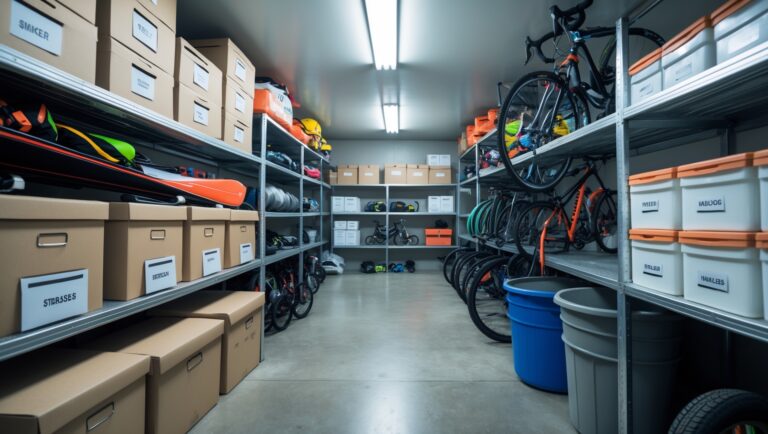Avoiding Moving Day Disasters: Top Beginner Mistakes and How to Prevent Them
Introduction: Why Moving Day Mistakes Matter
Moving day is one of those high-stress, high-stakes events that can either run like clockwork or spiral into chaos with a single misstep. Whether you’re a first-time mover or overseeing a move for your business, the details matter—and the smallest oversight can lead to delays, damage, or unexpected expenses. From underestimating time to packing mistakes, beginners often fall into the same traps. Yet, with the right preparation and awareness, most moving day disasters are entirely preventable.
This comprehensive guide is designed to help you identify the most common moving day mistakes beginners make, understand the consequences of each, and—most importantly—put in place practical strategies to avoid them. We’ll cover everything from scheduling slip-ups and packing blunders to overlooked legal requirements and last-minute surprises. This isn’t just a checklist; it’s a deep dive into the real-world problems movers face, with expert tips and actionable solutions to ensure your move is as smooth and stress-free as possible.
1. Underestimating Time and Resources
Why It Happens
One of the biggest mistakes is assuming you can pack, load, and transport everything in a few hours. Moving always takes longer than expected, especially for beginners who aren’t familiar with the process or who misjudge the volume of their belongings.
Consequences
- Rushed packing leads to breakage and disorganization.
- Delays may result in late fees, missed elevator reservations, or additional charges from movers.
- Inadequate vehicle size can force multiple trips or require costly last-minute truck upgrades.
How to Avoid It
- Start early: Begin packing several weeks in advance, focusing on non-essentials first.
- Inventory your belongings: Use a checklist to assess how much you have—and measure large items.
- Consult professionals: Ask moving companies for volume estimates based on your inventory.
- Build in buffer time: Add at least 25% extra time beyond your best estimate for each stage.
2. Skimping on Packing Supplies and Techniques
Why It Happens
Trying to save money, many beginners use old boxes, skip bubble wrap, or underestimate the need for specialty packing materials. Others overpack large boxes or fail to label them properly.
Consequences
- Fragile items break due to inadequate protection.
- Boxes tear or collapse during handling.
- Unlabeled boxes cause confusion and frustration during unpacking.
How to Avoid It
- Invest in quality supplies: Use sturdy, uniform boxes, packing paper, bubble wrap, and strong packing tape.
- Don’t overpack: Keep box weights under 50 lbs; use small boxes for books and heavy items.
- Label every box: Indicate room, contents, and handling instructions on each box’s top and sides.
- Use specialty containers: Wardrobe boxes, dish packs, and mattress bags provide added protection.
3. Failing to Reserve Parking and Elevators in Advance
Why It Happens
Many first-time movers forget that logistics don’t just involve packing and transport. Apartments, condos, and urban homes may have strict rules about when and where you can load or unload.
Consequences
- No available parking for the moving truck, leading to long carries or parking fines.
- Elevator access conflicts with other residents or scheduled maintenance.
- Delayed or rushed move-in, especially in buildings with tight moving windows.
How to Avoid It
- Contact building management early: Reserve elevators and loading docks for your moving window.
- Obtain parking permits: For street parking, apply for temporary permits if needed.
- Notify neighbors: Give advance notice to minimize disruptions and conflicts.
4. Overlooking Legal and Access Requirements
Why It Happens
Beginners may not realize that certain moves require permissions, permits, or special access arrangements—especially when crossing state lines, using storage facilities, or moving into managed properties.
Consequences
- Delays due to missing paperwork or denied access.
- Fines for parking violations or unauthorized moving activity.
- Unexpected restrictions on move-in/move-out timing.
How to Avoid It
- Check with all parties: Confirm requirements with both origin and destination property managers.
- Research local rules: Many cities require permits for moving trucks or restrict moving times.
- Prepare documents: Carry lease agreements, IDs, and any required moving authorizations on hand.
5. Ignoring Safety and Proper Lifting Techniques
Why It Happens
In the rush to get done, many movers lift improperly, skip using tools, or try to move items that are too heavy alone. Lack of planning can also block safe pathways.
Consequences
- Injuries: back strains, twisted ankles, or dropped items causing foot injuries.
- Damage to property: gouges in walls, scratched floors, broken furniture.
- Delays due to accidents or exhaustion.
How to Avoid It
- Use proper equipment: Dollies, hand trucks, lifting straps, and furniture sliders make heavy lifting safer.
- Lift with your legs, not your back: Keep your back straight and avoid twisting motions.
- Clear pathways: Move rugs, cords, and obstacles before handling heavy items.
- Work in teams: Never attempt to move heavy furniture or appliances alone.
6. Leaving Utilities and Change of Address Until the Last Minute
Why It Happens
Amidst the chaos of packing, tasks like transferring utilities and updating addresses are easy to forget. Many people assume they can handle these after the move, not realizing the potential for disruption.
Consequences
- No power, water, or internet upon arrival at your new location.
- Missed bills, delayed mail, and security risks from outdated address records.
- Difficulty verifying identity or services at your new address.
How to Avoid It
- Schedule utility transfers: Arrange for utilities to turn off at your old home and on at your new one on moving day.
- Update address everywhere: Notify the post office, banks, insurance, subscriptions, and key contacts two weeks before your move.
- Keep a checklist: Use a master list to ensure nothing is missed.
7. Failing to Prepare an Essentials Box
Why It Happens
In the rush to pack everything, beginners often forget to set aside items needed immediately at the new place. Essentials get buried in boxes, leading to stress after arrival.
Consequences
- No easy access to toiletries, medications, chargers, bedding, or important documents.
- Extra unpacking and re-sorting just to find necessities.
- Added stress and discomfort on the first night in a new home.
How to Avoid It
- Pack a personal essentials box: Include a change of clothes, toiletries, medications, snacks, chargers, and basic tools.
- Label and keep with you: Mark the box clearly and transport it in your car, not the moving truck.
- Prepare a “first night” kit: Add bedding, towels, and items for kids or pets if needed.
8. Not Insuring Belongings for the Move
Why It Happens
Many first-time movers assume their renters or homeowners insurance covers items in transit. Others skip insurance to save money, underestimating the risks.
Consequences
- Loss or damage to valuable items with no compensation.
- Disputes with movers about liability.
- Unexpected out-of-pocket replacement costs.
How to Avoid It
- Check your coverage: Contact your insurance provider to ask if and how your belongings are covered during a move.
- Consider moving insurance: Most moving companies offer basic coverage, but you may want to purchase full-value protection or a third-party policy for high-value items.
- Document valuables: Take photos and keep records of serial numbers for electronics and expensive goods.
9. Overpacking or Neglecting Decluttering
Why It Happens
Inexperienced movers often underestimate the time and effort required to sort and declutter before packing. The result? Everything gets packed—including items that should have been donated, recycled, or trashed.
Consequences
- Increased moving costs due to higher volume and weight.
- Wasted time packing and unpacking unnecessary items.
- Clutter and disorganization in the new space.
How to Avoid It
- Sort before you pack: Use the “keep, donate, discard” method for every room.
- Schedule donation pickups: Arrange for charity pickups or recycling before moving day.
- Be ruthless: If you haven’t used something in a year, seriously consider letting it go.
10. Forgetting to Prepare Appliances and Electronics
Why It Happens
Appliances and electronics require specific preparation for safe transport. Beginners may not realize fridges need defrosting, washing machines need to be drained, or electronics require special packing.
Consequences
- Leaks, odors, or damage to appliances.
- Lost or tangled cables for electronics.
- Malfunctioning devices after the move.
How to Avoid It
- Defrost and clean appliances: Do this 24–48 hours before moving day to prevent water damage and odors.
- Unplug and secure cords: Tape cords to each appliance or use labeled bags for small parts.
- Use original boxes: If possible, pack electronics in their original packaging with foam inserts.
11. Neglecting Weather Preparation
Why It Happens
Weather can be unpredictable, and many beginners don’t account for rain, snow, or extreme heat on moving day.
Consequences
- Water damage to boxes, furniture, or electronics.
- Slippery walkways leading to injuries.
- Delays and increased stress.
How to Avoid It
- Check the forecast: Look ahead and be ready to adjust your plans if severe weather is likely.
- Protect your items: Use plastic wrap, tarps, and waterproof bins for vulnerable belongings.
- Prepare walkways: Lay down mats or cardboard to prevent slipping and track less dirt inside.
12. Not Having a Backup Plan
Why It Happens
Optimism is great, but moving day rarely goes 100% according to plan. Beginners often don’t consider what they’ll do if something goes wrong—such as a truck breakdown, delayed movers, or unexpected access issues.
Consequences
- Panic and last-minute scrambling.
- Extra costs for emergency storage, hotels, or rescheduling.
- Frustration and stress for everyone involved.
How to Avoid It
- Have emergency contacts: Keep phone numbers for your moving company, storage facility, and backup helpers handy.
- Scout alternatives: Identify nearby storage options or hotels in case your move is delayed.
- Keep essentials with you: Always have access to necessities in case you’re separated from your belongings for a night or more.
Conclusion: Moving Smart Means Moving Prepared
Every moving day is a complex operation with countless variables. As you’ve seen, the most common beginner mistakes—underestimating time, skimping on supplies, forgetting logistics, and neglecting preparation—can quickly turn a promising day into a costly disaster. However, with careful planning and attention to detail, these pitfalls are entirely avoidable.
Start early, approach the process methodically, and don’t be afraid to ask for help from professionals or experienced friends. Invest in the right supplies, confirm every logistical detail, and always prepare for the unexpected. Moving is more than just transporting stuff—it’s about transitioning your life smoothly and safely to a new chapter. By side-stepping beginner errors, you’ll save time, money, and your peace of mind.
Remember: a successful move is measured not just by how fast you finish, but by how little stress, damage, and disruption you experience along the way. Take these lessons to heart, and your next move can be a triumph—not a trial.






